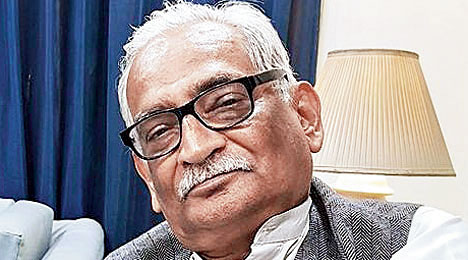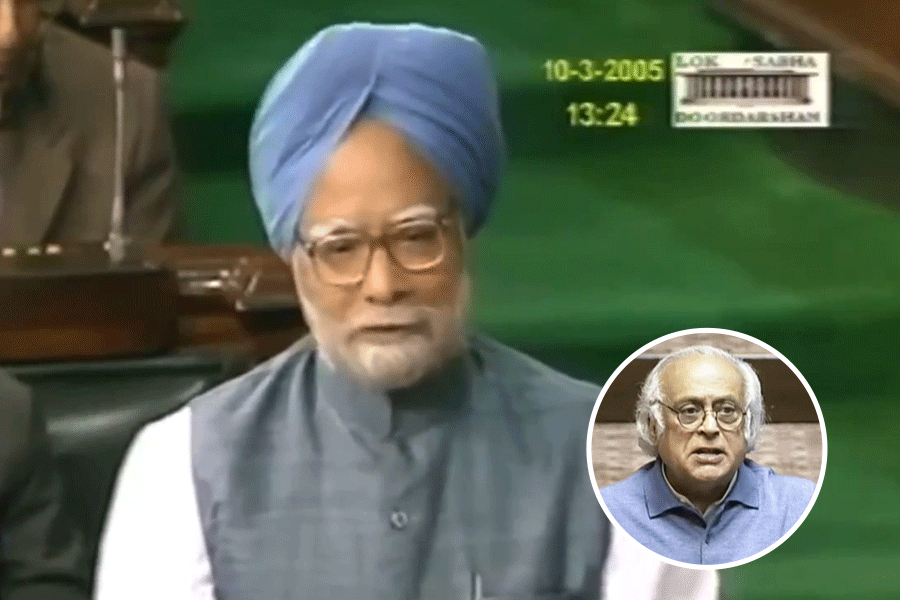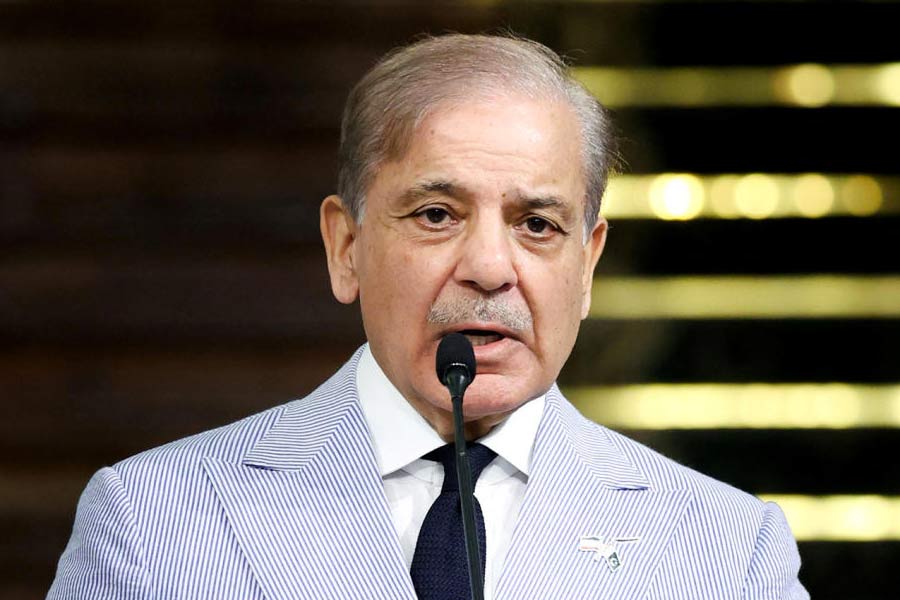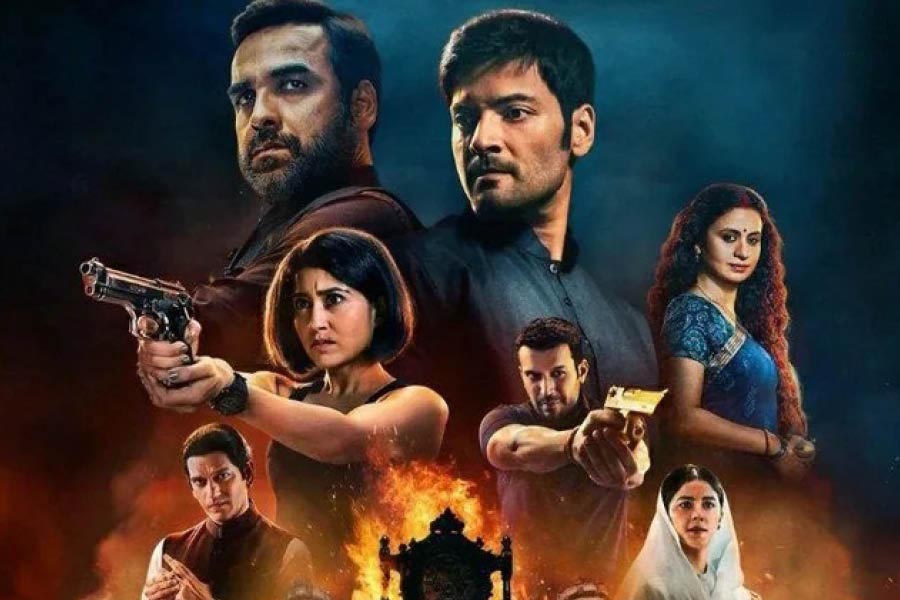Senior advocate Rajeev Dhavan told the Supreme Court that it would be making a “martyr” out of lawyer Prashant Bhushan if it sends him to jail, asserting that Bhushan would always be “critical” of the judiciary and cannot be silenced through contempt proceedings.
Dhavan, who appeared for Bhushan, disagreed with the views of attorney-general K.K. Venugopal. Unlike Venugopal who suggested Bhushan should be let off with a warning if he expressed regret, Dhavan contended that Bhushan should not even be “reprimanded”.
“If you want to impose a jail term, my advice would be don’t make Prashant Bhushan a martyr, like what happened after the Babri Masjid was demolished and Kalyan Singh was convicted of contempt…,” Dhavan told the bench of Justices Arun Mishra, B.R. Gavai and Krishna Murari.
“Don’t make Prashant Bhushan a martyr… this controversy will continue depending on what punishment this court gives to him. And this controversy will end only if this court shows statesmanship. Lordships must be merciful as they have broad shoulders. Criticism cannot be suppressed for the well-being of society,” Dhavan said.
“This institution must have criticism and not just criticism but extreme criticism. Your shoulders are broad enough,” he said.
BJP veteran Kalyan was sentenced to one day’s imprisonment and fined Rs 20,000 by the Supreme Court in October 1994 for contempt after he failed to prevent the demolition of the Babri Masjid while he was chief minister despite giving an undertaking to the court about its safety.
Justice Mishra said: “There is a difference between an officer of the court and a politician. I am not commenting on Mr Bhushan. But that’s what is happening nowadays. You go to the press even in sub judice matters, make all kinds of comments when the court is already hearing it.
“If someone with a standing of 30 years, like Mr Prashant Bhushan, says something, people tend to believe him. They will think whatever he is saying is correct. Had it been someone else, it was easier to ignore but when Mr Bhushan says something, it has some effect.”
Dhavan said: “Although AG (attorney-general) says a reprimand is in order, I’ll say a general statement is enough and there is no need to reprimand him.”
Justice Mishra wondered how all the petitions/applications filed by Bhushan first find their mention in the media before being heard by the court.
Justice Mishra: “It is about the system, if we are going to destroy each other, who will have faith in this institution? You have to be tolerant, see what the court is doing and why. Don’t just attack. Judges can’t go to press to defend themselves or explain.
“Whatever we have to say, we have to write in our judgments. There are so many things but do we have to go to the press? I will never do that. That’s the ethics for judges. If we are going to fight each other, pull each other down, we will finish this institution.
“Haven’t people been criticising us? So many people criticise us but how many people have we convicted or punished? There is another case against Mr Bhushan pending since 2009, has he been punished there? I have to demit office and it is painful I have to deal with all this.
Justice Mishra (in a choked voice): “If the Bar and the Bench are going to destroy each other, who will have faith in this institution? Don’t just attack. Judges cannot go to press to defend themselves. You (lawyers) are our voice.”
Dhavan agreed that statements should not have been released to the media before the court took up the matter.
Justice Mishra said that live reporting of the court proceedings were often one-sided and in many cases wrong, and referred to two legal websites for their alleged one-sided reporting.
Dhavan said that instead of punishing Bhushan, the court could write a judgment laying down the code people should follow, but the idea should not be to silence Bhushan.
“A reprimand may have repercussions not clear at this stage. Please say in the judgment ‘we don’t agree with Mr Bhushan but a code should be followed’,” he said.
Justice Gavai asked if it was appropriate for lawyers to give interviews or attend webinars on sub judice matters.
Dhavan agreed that lawyers “have no business” making comments on sub judice matters.
At this stage, Venugopal said the veracity of Bhushan’s allegations against the former Chief Justices of India could be arrived at only after eliciting the views of the former judges, which would warrant a fresh inquiry.
“Bhushan can’t be punished till that inquiry concludes…,” the AG said while suggesting that the court must “give a quietus” to the issue.
Justice Mishra: “But there have been allegations against the sitting judges too. Should we call all judges here?”
Venugopal: “Hearing those judges would mean a never-ending inquiry. So, Your Lordships can say that his defence cannot be taken into account. Therefore, Your Lordships can leave the matter at rest as it is now, by saying that his defence cannot be looked into.”
Justice Mishra: “When the judges are speechless, who will protect them? Only the Bar will protect them. Only the attorney will protect them. How long will the system suffer this criticism?
“You can criticise but do not attribute motives. Judges are condemned, their families are humiliated and they can’t even speak. You are the leader of the Bar. We expect you to be impartial. You may have love and affection for anyone but we want you to be fair. Don’t take sides.
“For how long will the system suffer all this? I am retiring in a few days. Will it be okay if you or others start attacking me? Can you say anything against retired judges?”
Justice Mishra: “What’s so bad in apologising? If someone has made a mistake, what’s wrong in seeking an apology? If you have hurt someone, why can’t you apologise? I am not commenting on Mr Bhushan right now. You go on to the extent of quoting Mahatma Gandhi but you can’t apologise?”
Dhavan told the bench that although he himself had been critical of the judiciary, he was never hauled up for contempt.
“I myself described former CJI Justice J.S. Khehar as a sultan in the court and I demonstrated why and how. There was no contempt case against me,” Dhavan said while referring to a number of his articles, books and comments on the judiciary.
“The term ‘scandalising the court’ is ambiguous. Criticism of court is inevitable. Consider the bona fide of the ‘offender’ and then consider the offence. I have now written 1,031 articles, out of which 900 are on the Supreme Court and I don’t write unless there is something to say,” he said.
Referring to the court’s order convicting Bhushan of criminal contempt and granting him a few days to consider an unconditional apology, Dhavan said an apology cannot be extracted through coercion.
“Your previous order was almost as though the contemnor was being coerced into tendering an apology. This is not what the Supreme Court does — ‘we give you so many days, tender an apology’. This is wrong jurisprudence. No court can pass an order like this.
“When a person is called for a contempt case, is he not supposed to offer a defence? An apology cannot be a mere incantation, an apology has to be made sincerely and he (Bhushan) sincerely says that ‘this is my belief’,” Dhavan said.
Dhavan contended that “nobody can be forced to retract from what he believes to be his ‘bona fide belief’. If Mr Bhushan’s statement is read as a whole, it says he has the highest regard for this institution but he has his opinion about the last four CJIs and the manner in which this court has gone wrong. We criticise this court when we feel sincerely about this institution.
“This court should invite criticism. It is the duty of all of us to make responsible criticism. Harley-Davidson is hardly a criticism when this is in public domain,” Dhavan said, referring to one of the tweets by Bhushan.
The senior lawyer showed the court a copy of the Daily Mirror of the UK. The front page featured upside-down images of three judges, and the headline that screamed: “You fools.” The tabloid was referring to a ruling on a British government gag order on a book on espionage. No contempt action was taken against the paper for the contents of the front page.
On Tuesday, Dhavan said: “This court can only survive on the basis of strong criticism.”
Dhavan contended that if criticism of the judiciary is contempt, former CJI R.M. Lodha, former Supreme Court judges Madan B. Lokur and Kurian Joseph and veteran journalist Arun Shourie should also be convicted of contempt.
“Apology cannot be coerced…. This was not scurrilous, this was a strong criticism of this court which is shared by several others in this country…. When you say ‘don’t do it again’, he is entitled to ask ‘what is it that I don’t do again?’. Such a reprimand or bald warning is too broad and shouldn’t be done. One cannot be silenced forever.
“A message that he should be a little restrained in future should be enough. You want him not to do this again… not to criticise the court? Never to express his bona fide opinion, even if truth is his defence? No, he will always be critical…,” Dhavan said.
Justice Mishra asked: “If we decide to punish him, what should be the punishment?”
Dhavan said: “A general message, not even a reprimand. If you want to bar him from practice, you will have to hear him first.”










